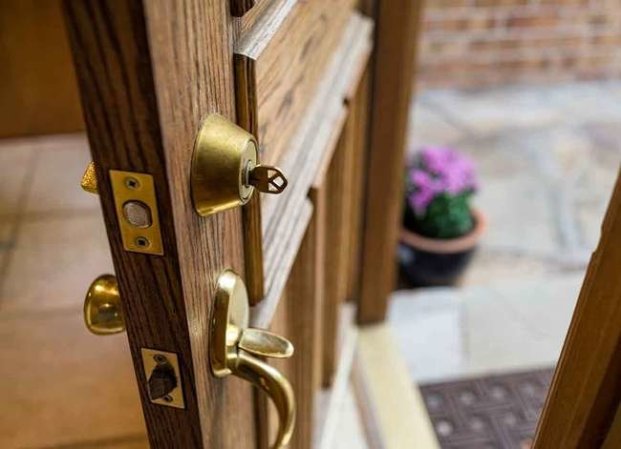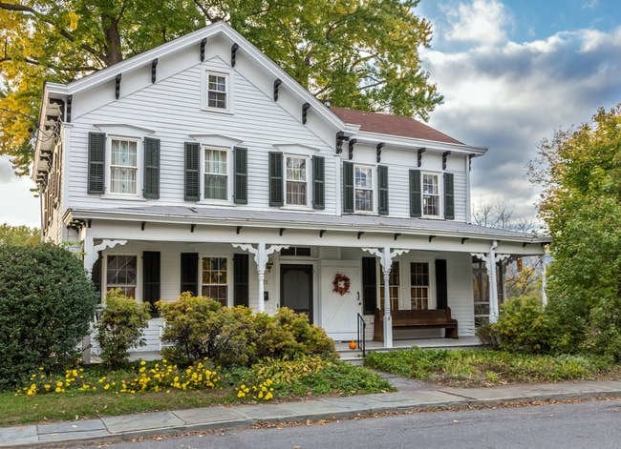We may earn revenue from the products available on this page and participate in affiliate programs. Learn More ›
What You Need to Know
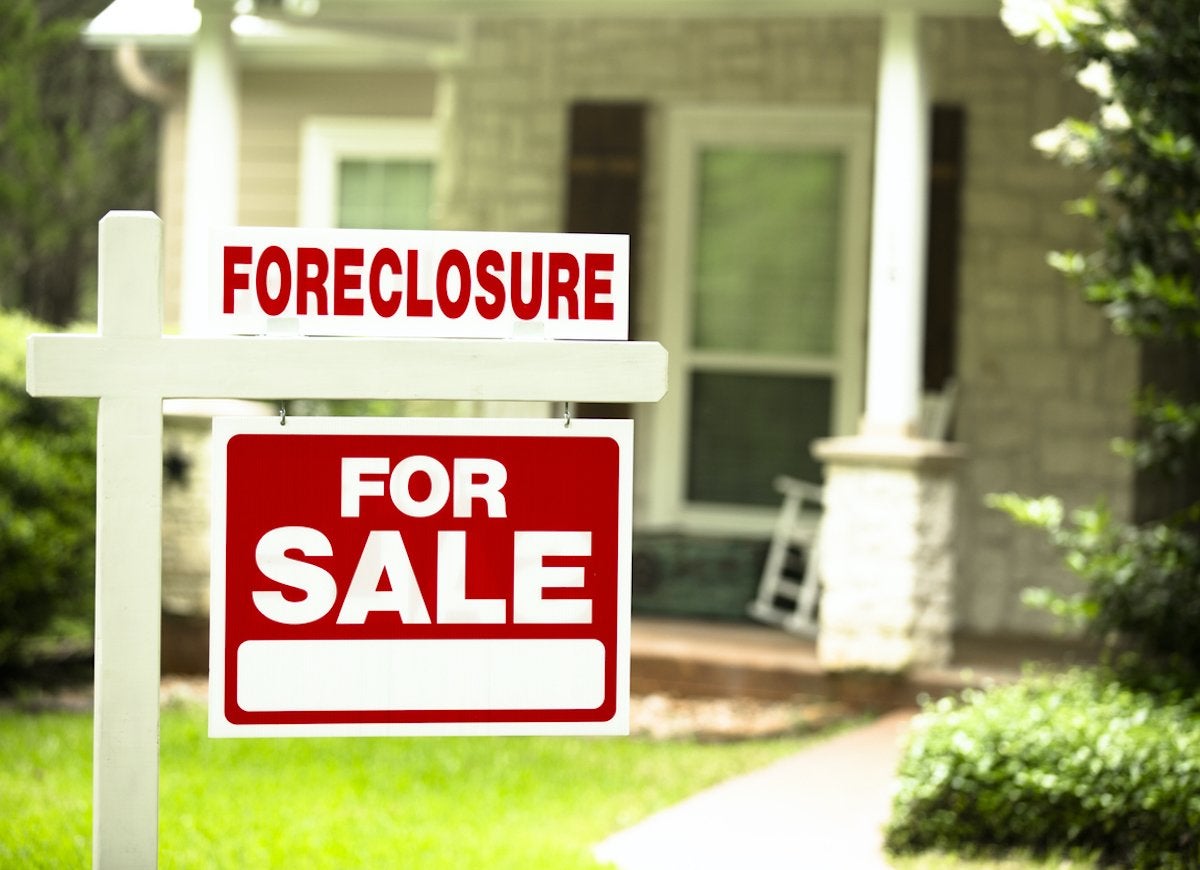
Anyone with an interest in real estate may be tempted to buy a foreclosed home, a property on which the owner stopped making mortgage payments. The low prices lure home buyers in search of a deal, and they also tempt people aiming to flip the place for profit. The process of acquiring a foreclosure, however, can be far more complicated and time-consuming than it appears on reality TV shows. We asked people across the country to share cautionary tales of the obstacles that sour these seemingly sweet deals. Read on for the rude awakenings!
The Market Moves Fast

Lace up your sneakers! Anna Newell Jones, the Colorado blogger behind And Then We Saved, learned that the foreclosure market can run at lightning speed. “Many times we would find a place we liked and then it would be under contract almost immediately,” she says. “We had to act fast, and that can be scary.” Newell Jones didn’t want to overpay and end up underwater, so she kept repeating her mantra of “Buy low!” and held on until she found the right deal.
Related: 8 Homeowners Admit to Their All-Time Biggest Screw-Ups
You Might Not Get a Traditional Loan

Jeff Miller, co-founder of the real estate firm AE Home Group in Maryland, had his eye on a Department of Housing and Urban Development (HUD) property. He hoped to land a Fannie Mae (officially, the Federal National Mortgage Association) loan at 25 percent down with a 30-year amortization and a five percent interest rate—but the place had significant termite damage, and HUD was selling it “as is,” so he didn’t qualify for the loan. “We had to scramble for a ‘hard money’ loan, which uses investor capital instead of bank financing and proved much more expensive—a 10 percent interest rate and two points,” Miller says. He saw it through, however, and eventually came out fine: “After renovating and finding a renter, we reapplied for a conventional loan and were able to refinance.” The moral? Persist!
It May Carry a Hefty Tax Burden

Just because a property is in foreclosure doesn’t mean it’s free and clear. “Unlike most liens that are eliminated in the foreclosure process, IRS tax liens survive,” warns Seth Phillips, president of SP3 Realty in California. “There could be a tax lien against the former owner that doesn’t show up in a cursory title search but could show up as a lien against the property.” Buyer beware—and prepare to shell out!
Vacant Homes Harbor Hidden Problems

Real estate pro Evan Roberts of Dependable Homebuyers in Maryland was eager to obtain a row house foreclosure. “While the inspector found everything else to be in decent shape, he was unable to test the plumbing, electrical, or boiler because all the utilities were off,” says Roberts, who explained that utility companies commonly cut the lines in vacant homes as a safety precaution. “It cost me thousands of dollars to have everything reinstated after three months of red tape.” What’s more, Roberts learned that unused plumbing can be prone to problems. “I went to the home shortly after the water got turned on to find water leaking from the ceiling all over the floor below,” he says.
You Can't Always Peek Inside

An old adage tells us not to judge a book by its cover, but when it comes to foreclosures, you may not have a choice. “We weren’t allowed to inspect the interior of the property prior to the sale because the resident was still in the home,” says Glenda Taylor, a Kansas construction pro and one of Bob Vila’s favorite writers. “We walked around outside and saw that the foundation looked good but that we’d need to replace the roof and the windows.” The rest was pure speculation, so Taylor and her husband adjusted their bid price and got the place—only to find far more work than they had bargained for. “Had we known the true condition, we probably wouldn’t have bid,” Taylor admits.
Foreclosures Can Resemble Crime Scenes

While she never had to call in a CSI team, Maria Demme, a broker with Ideal Properties in California, warns about the potential for chaotic conditions in foreclosures. “When people are foreclosed on, they can become very angry and start ripping the place apart. They’ll pull out sinks, toilets, faucets, cabinets, countertops, doors, windows—whatever they can get their hands on—either to sell or just to vent.” What’s more, empty houses can attract the unscrupulous, including scammers who “rent” the place, squatters who force their way inside, and bad guys who engage in illegal activity on the property.
The Government May Help Finance Repairs
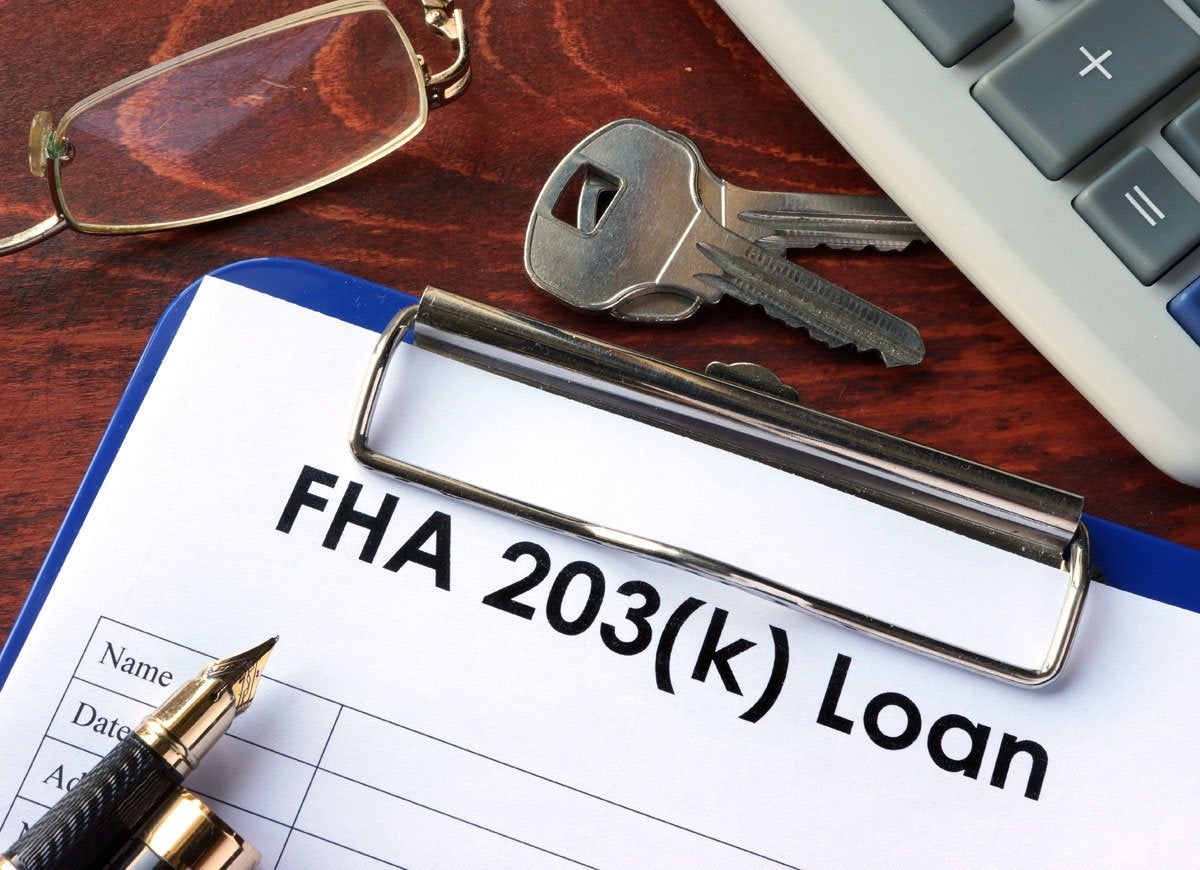
Savings-savvy blogger Newell Jones says potential buyers should know about Federal Housing Administration 203(k) loans that can help finance repairs. According to HUD: “Section 203(k) offers a solution that helps both borrowers and lenders, ensuring a single, long-term, fixed- or adjustable-rate loan that covers both the acquisition and rehabilitation of a property.” In other words, the government may be a source of funds to get that fixer-upper in shape.
Related: 11 Awful Real Estate Photos—And How to Make Yours Great
Insurance Might Be a Hassle

Darlyn Kuhn, a public relations executive, hoped to purchase a Florida foreclosure that had been damaged by Hurricane Irma but largely repaired, thanks to Fannie Mae. Unfortunately, Kuhn’s inspector discovered polybutylene pipes, which were common in 1980s and 1990s construction but are now known to weaken and fail. “Most insurers wouldn’t touch us, and without insurance we couldn’t get a mortgage,” Kuhn recalls. Fannie Mae had already reached its repair spending limit, and while Kuhn wasn’t thrilled with the prospect of paying an extra $5,000 to replace the pipes, she wasn’t even permitted to do so because she didn’t yet own the place. “Total Catch 22!” she recalls. Finally, Kuhn found an insurer and got a mortgage—and her pipes are holding up “so far!”
Related: 12 Reasons a Realtor Might Not Want to Work with You
Emotional Situations Are Common

When your priority is a fast sale at a low price, it’s easy to forget the human factor. Then you suddenly realize there are people involved—including yourself. “Buying a foreclosure can be tough emotionally,” says Glenda Taylor. “In our case, the resident was the girlfriend of the homeowner. They’d lived together for 20 years, but the mortgage was in his name. When he died in a tragic accident, she didn’t have the option of taking over the payments because they weren’t married, so the bank foreclosed.” Taylor has a heart, so she allowed the woman to get her life together and move out— which took nearly a month.
Related: 10 Signs Your House Isn’t Ready to Go on the Market
Removing the Former Owner Is Your Responsibility
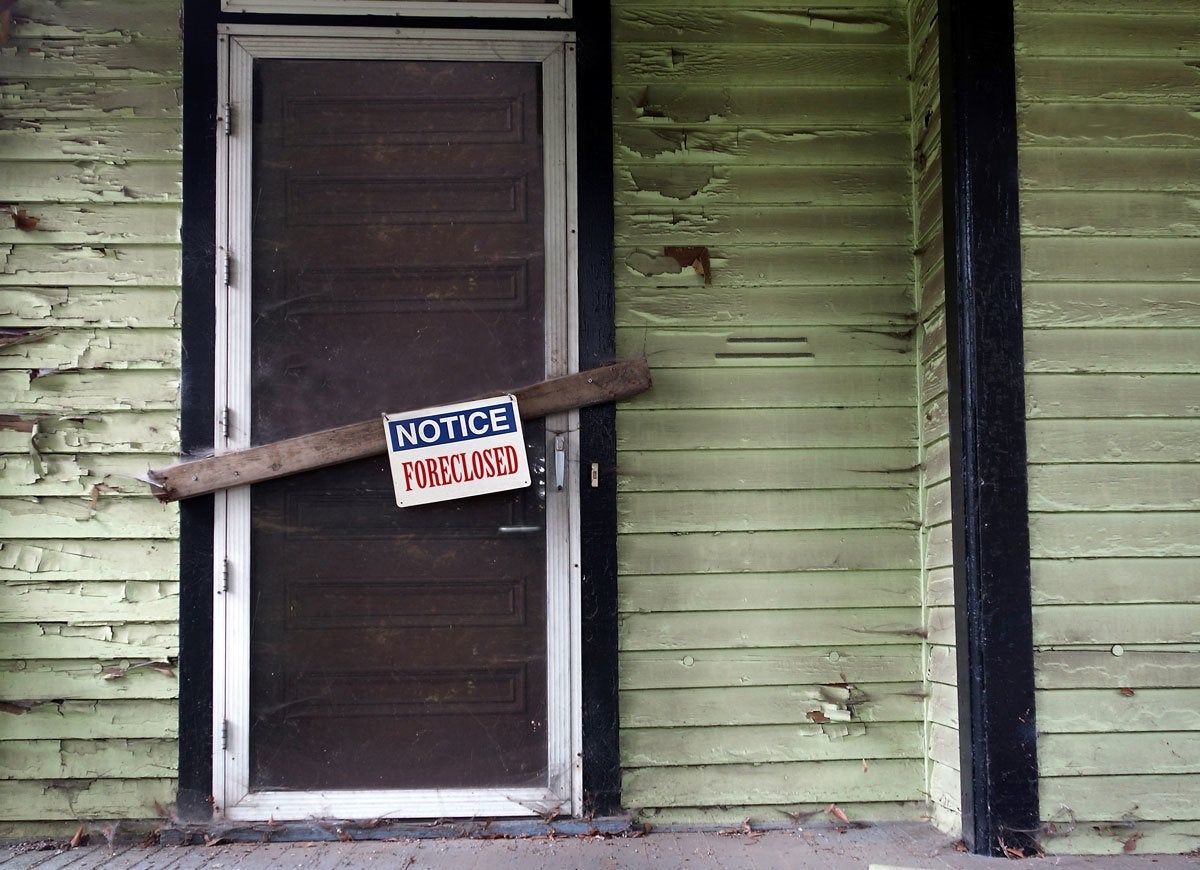
Even if you can approach foreclosure with an “it’s just business” attitude, you may still have trouble removing the residents. “Most people think a foreclosure sale means the sheriff will put the former owner on the street. Nothing could be further from the truth!” says Pennsylvania attorney Jim Tupitza. “In most states, a second lawsuit, called an ejection action, is required, and that can take anywhere from months to years. So you pay for the house now and pray the occupants will leave, rather than multiply.”
Real Estate Research
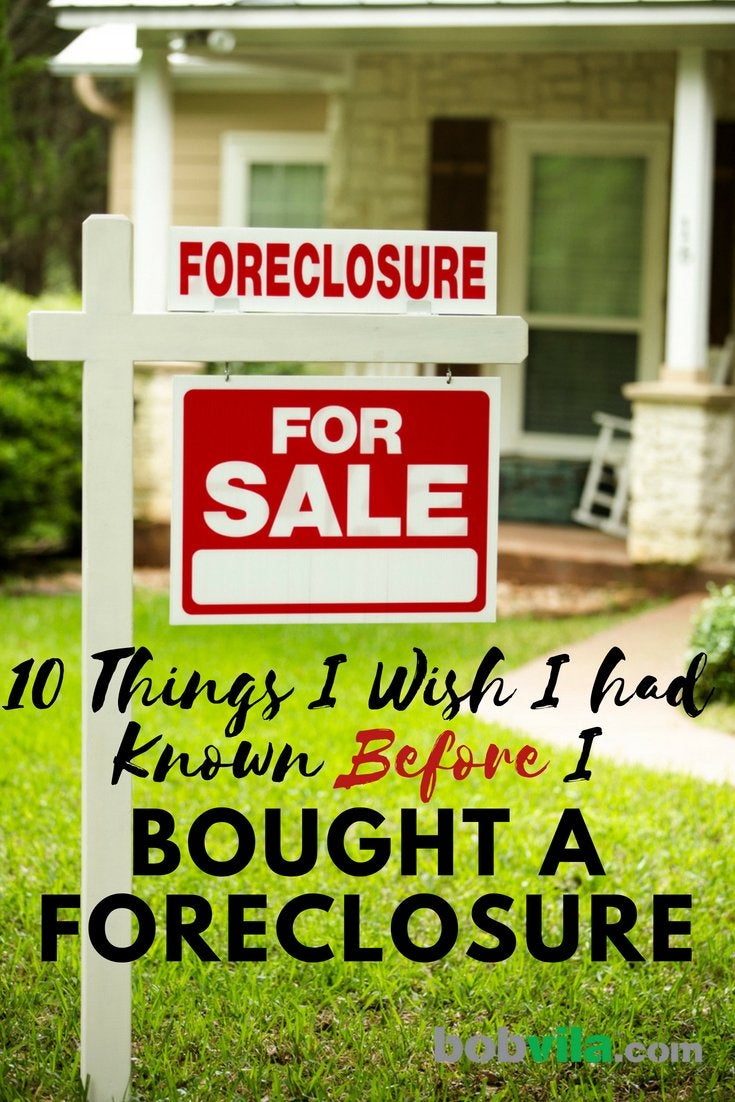
Any real estate investment requires research and planning, but especially so if you’re considering a foreclosure. Now that you’re aware of what makes this different than purchasing other property you can discern if this is the right path for you.


